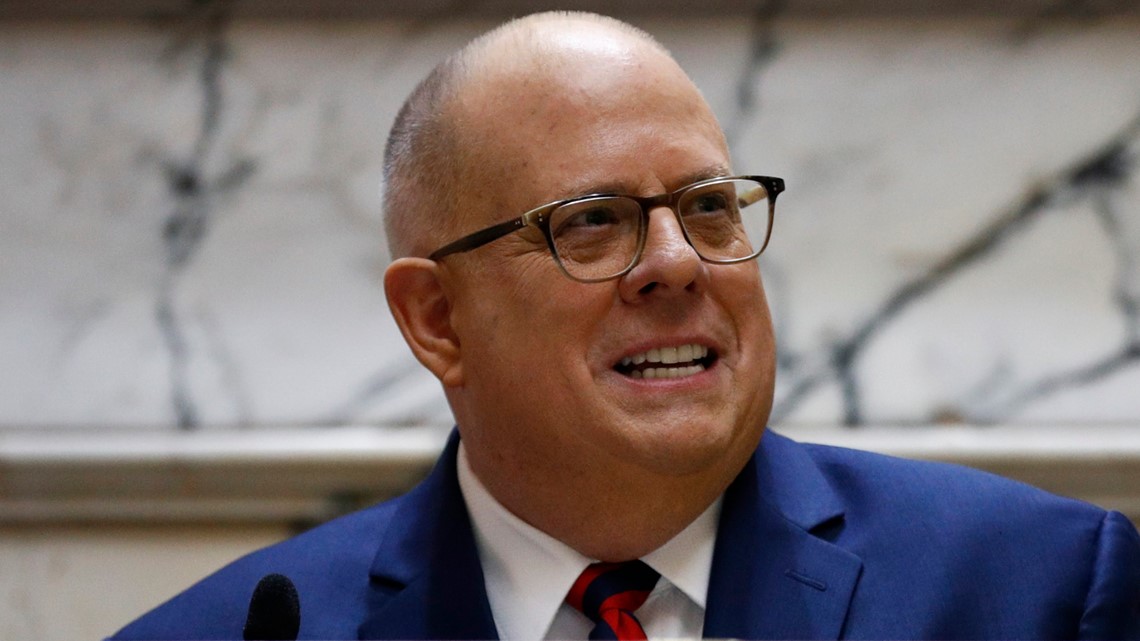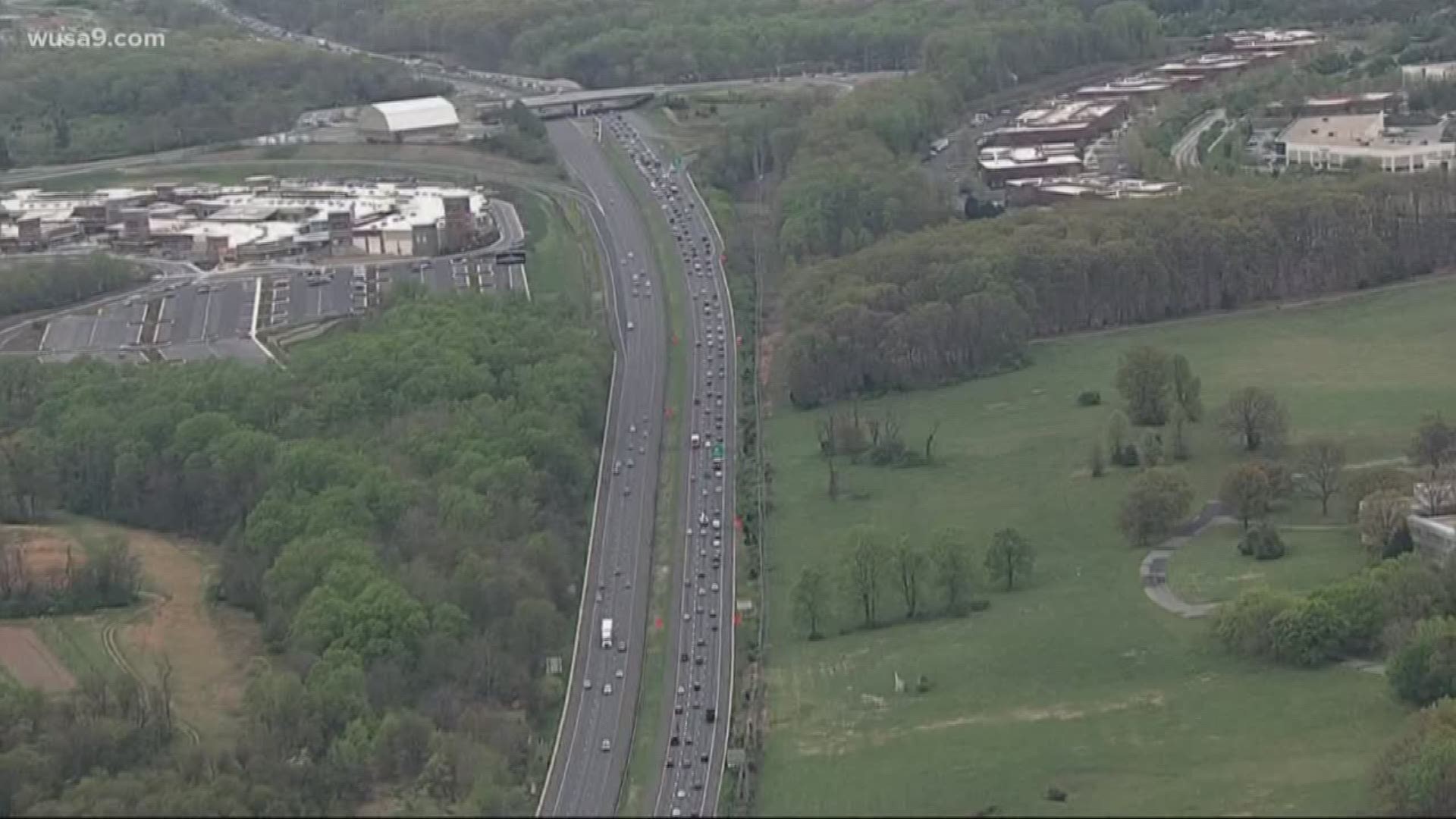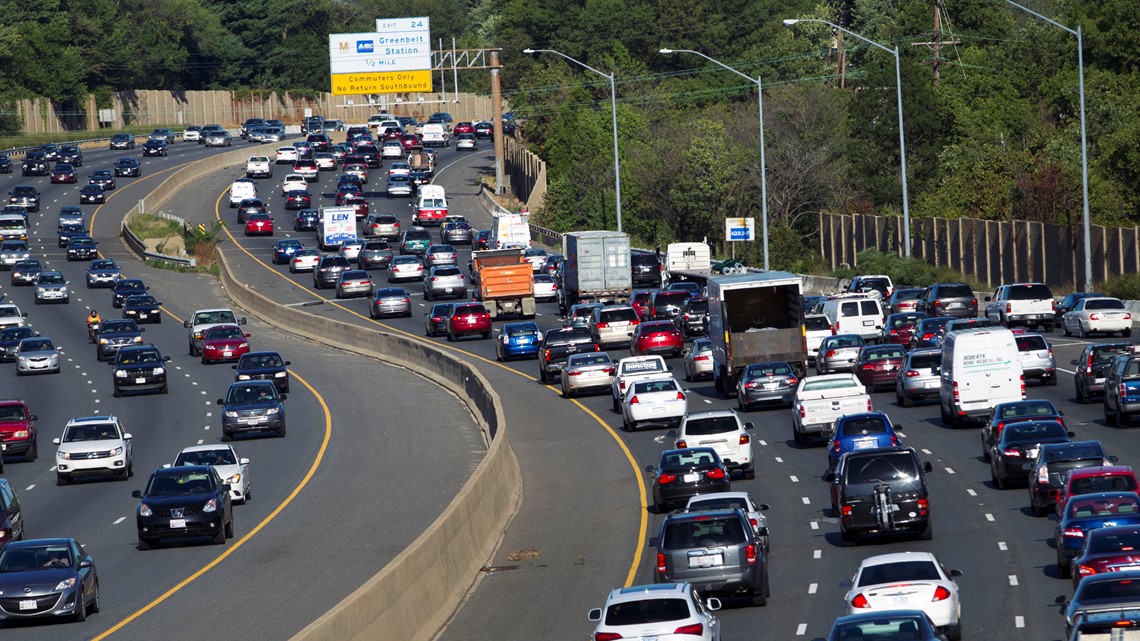ANNAPOLIS, Md. — Maryland Governor Larry Hogan, under pressure from opponents in Montgomery and Prince George's counties, asked the state's Board of Public Works Wednesday to delay a controversial privatization plan to widen the Capital Beltway with toll lanes, and improve the American Legion Bridge in favor of making improvements on I-270 the first priority.
The delay resulted in a key two-to-one vote in favor of allowing the state to form a critical public-private partnership, that will allow eventual toll lane development in D.C.'s Maryland suburbs.
State Treasurer Nancy Kopp voted against the privatization scheme, with Comptroller Peter Franchot and Hogan voting for it. The three officials make up Maryland's Board of Public Works, which is responsible for approving all state contracts.
Hogan found himself in a battle to save his proposed $11 billion plan to have private developers install for-profit toll lanes on the Capital Beltway and I-270 to relieve what he calls "soul-crushing" traffic congestion.


Leaders in Montgomery and Prince George's counties stepped in to oppose the plan and offer alternatives as it became clearer that toll-lane development would result in widening and condemnation of an undetermined number of properties in close-in, congested suburbs like Silver Spring.
In remarks to the Board of Public Works before the vote, Hogan said that the "phase one" priority of toll lane development should be the American Legion Bridge and the Capital Beltway through Montgomery County because those are the most congested areas.
"However, this phase has generated the most concerns from citizens and the strongest opposition from local Montgomery County elected officials who have asked us to delay these much-needed road improvements," the Governor said.
"Reluctantly, we will agree to that delay and we will instead move forward with improvements to I-270 as phase 1," Hogan said.
The governor emphasized that the Board of Public Works decision will allow environmental studies to continue on all three phases.
"It will result in less traffic, more peace of mind, cleaner air, and a much better quality of life," Hogan said.
The key swing vote came from Maryland Comptroller Peter Franchot who lives in Takoma Park.
In addition to the Governor's concessions, Franchot insisted on amendments to the approval including: That 10% of the state’s portion of toll revenue sharing be dedicated to fund regional transit projects; that commuter buses be allowed to use the toll lanes without charge; that no property would be condemned without a fully completed Environmental Impact Study; and that the state conduct a study into the feasibility of a proposed monorail system in the I-270 corridor


